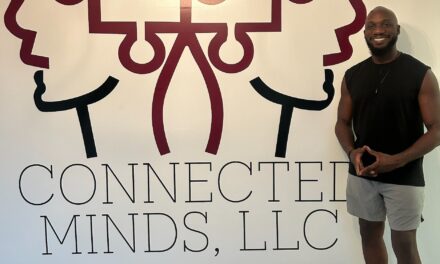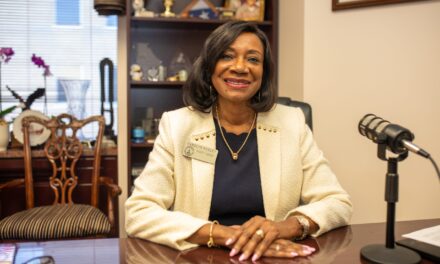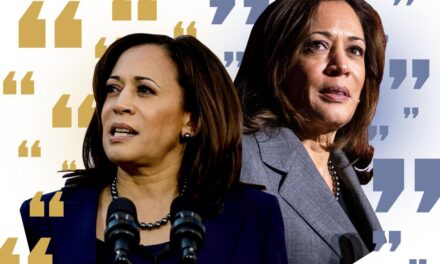After 17 years, the state of New York is re-evaluating its school funding formula. The state budget agreement calls for the Rockefeller Institute to study it.
Education advocates have noted that learning loss from the pandemic and the youth mental-health crisis have made this change more necessary. Randi Levine, policy director at Advocates for Children of New York, said the new formula must allocate funds for homeless students and students in the foster-care system.
“Currently,” she said, “the formula does not provide any additional funding for those populations of students who have distinct educational needs and often face barriers to success in school.”
A 2023 report noted that more than 119,000 New York City students are homeless. Other recommendations to improve the funding formula include providing resources for New York City to implement its new class-size requirements, improvements to special-education distribution funding, and cost-effective strategies to aid multilingual learners.
The final report from the Rockefeller Institute will be presented in early December.
Political will from New York Gov. Kathy Hochul and the state Legislature remain a challenge to implementing some formula changes. Levine noted that pandemic funding was used to create a host of beneficial programs for students in New York City. Without that continuous federal funding, she said, New York State has to pick up the slack.
“These are programs that were needed before the pandemic and are still needed today,” she said. “But, the federal funding has now expired, and so there’s a need for the state to contribute more resources.”
Some of those programs included doubling 3-K program participation, bolstering preschool special education, hiring 500 school social workers and psychologists, and creating a program to have coordinators help students living in shelters get to school.
get more stories like this via email
A Detroit educator recently told a congressional committee he is “terrified” at what a second Trump term as president could bring for America’s public schools.
Rodney Fresh, a high school social studies teacher in Detroit, said parts of the Republican agenda appear to call for dismantling the public education system. He added the transition plan known as Project 2025 would “kick the ladder out from under” students who need it the most and eliminate the federal Department of Education.
“Why do they want to weaken public schools? If you ask me, it’s because they fear what public schools do – we teach critical thinking, honest history and tolerance – and because diverse, educated citizens threaten their power,” he asked.
Project 2025 is a 900-page blueprint by the conservative Heritage Foundation for reorganizing the federal government under a Republican administration. It calls for privatizing the public school system and cutting funding for more than 180,000 teaching positions.
Former President Donald Trump has denied any connection to the plan.
Fresh, who is a second-generation instructor, teaches ninth-grade U.S. history, 11th-grade world history and Advanced Placement African American studies. He warned that under Project 2025, classes on African American history would be censored, help for students with disabilities would be eliminated, and programs like Head Start, one of the most successful preschool programs of its kind, would be cut.
“This would shut off access to high-quality early childhood education for students in Detroit. It would also take away a lifeline many parents count on to give their kids a real opportunity and fair shot at overcoming poverty,” Fresh added.
Fresh told members of the U.S. House Democratic Steering and Policy Committee that under the plan’s guidelines, millions of public school students whose families can’t afford to send them to private schools would be deprived of the benefits of a quality public education.
“We can and must do better for the sake of our students. We cannot – and I repeat – we cannot allow Project 2025 to dismantle public education and destroy such an essential pillar of our democracy,” he said.
get more stories like this via email
Metro Nashville Public Schools and Nashville State Community College are working together to help some high school students launch health care careers.
They can take college courses and earn a technical certificate in the field of Central Sterile Processing. The “Better Together” partnership helps graduates prepare for and complete college.
Shanna L. Jackson, president of Nashville State Community College, said the state-funded $2 million grant brings her school’s surgical technical program to Pearl-Cohn and Maplewood High Schools. The funds will be used to set up a sterile processing lab in a classroom and hire two new faculty members, one at each school.
“As juniors, they’ll take dual enrollment courses. As seniors, they’ll take dual enrollment courses. In the summer, they’re actually going to have clinical experiences with area health care providers,” Jackson outlined. “And they will actually be able to sit for that exam and be well on their way to a career or come to Nashville State and finish their Associate Degree in Surgical Technology.”
Jackson explained central sterile technicians store, clean, sterilize, assemble and prepare medical equipment used during procedures. She added Gov. Bill Lee and the Tennessee Higher Education Commission recently announced funding for this initiative and 22 others through the Governor’s Investment in Vocational Education program.
Jackson stressed the Better Together initiative was designed to bridge the gap between high school and college, aiming to increase both enrollment and graduation rates at Nashville State. She noted they have been working to build pathways for students to get jobs in some high-demand, high-wage fields.
“We have now an early college that’s in its fourth year at Whites Creek High School, and we’re starting early colleges at Glencliff and Cambridge,” Jackson pointed out. “This gives students that are in high school the opportunity to not take Senior English, but to take English Composition with Nashville State.”
The students earn dual credit for high school and college. The “early college high school” program recently received a National Blue Ribbon Award from the U.S. Department of Education.
Support for this reporting was provided by Lumina Foundation.
get more stories like this via email
Many Massachusetts educators are denouncing the growing chorus of anti-immigrant rhetoric this election season.
They cited an uptick in reports of bullying and concern among immigrant parents about whether their children are safe at school.
Jessica Lander, a civics and history teacher at Lowell High School, said there is nothing partisan about standing up for students.
“We are sending a profound message to our students with the silence that they are not welcome, that they are not safe, that they don’t belong,” Lander asserted.
Lander argued immigrant students bring a tremendous amount of perseverance, grit and skills from living in multiple cultures, which inspires others to learn. Roughly 3,000 new immigrant students living in the state’s emergency shelter system enrolled in more than seventy school districts statewide last year.
Lander has traveled the country meeting with immigrant students and educators developing innovative ways to help them succeed. In her book, “Making Americans: Stories of Historic Struggles, New Ideas, and Inspiration in Immigrant Education,” Lander highlights a program in Lawrence, helping integrate immigrant parents into the school community. Other schools, she pointed out, are partnering with hospitals and local businesses to support a community approach to public education.
“Our students have so many strengths that we value in colleges and careers that I don’t necessarily know that we are identifying or telling our students that we value even if we do value them,” Lander explained.
Lander noted schools can often take a deficit approach to learning, meaning teachers look at the kids for what they lack rather than the skills they already have. An example, she emphasized, is in English as a Second Language. She recalled a former student from the Democratic Republic of Congo, who struggled to learn English but already knew nine other languages. She stressed schools are re-imagining what immigrant education looks like and it is important for educators to have the ability to learn from one another about what works best.
Support for this reporting was provided by Lumina Foundation.



